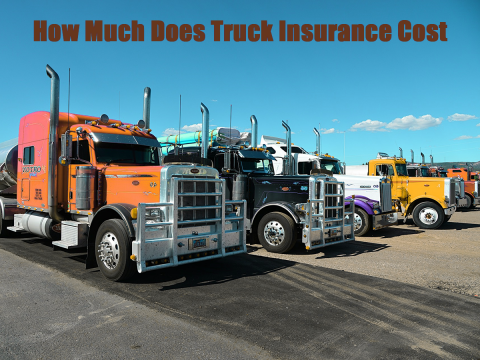to get insurance quotes in your area
Can i insure a car i dont own?

Over 90% of people who take out automobile insurance for personal use, take it out on automobiles for which they have titles in their name for. In fact, when getting free quotes online, it is often assumed. It makes sense that people would take out automobile insurance to protect their own vehicle, as well as protecting them from the possible expenses that could result from automobile accidents, like personal liability.
There could be a number of reasons to consider taking out insurance on a car that does not have your name on the title. The most common reason that someone would want to take insurance out on a vehicle that is not their own is because they drive that car regularly. If the car belongs to someone else, but they spend a lot of time driving it, it makes sense for them to be insured. It is essential to do this sort of thing right so that you do not end up getting either yourself or the owner of the car into any legal hot water or unnecessary financial responsibility.
Can I Insure a Car Not in My Name?
In the vast majority of cases, people can get insurance on a car that they do not own. Even though this may be the case, it is not always easy to do. Insurance companies do not often like when people take out insurance policies on cars that do not belong to them, and because of this, it may be difficult to find the plan that you are looking for at the price you want.
You may want to avoid purchasing your policy online and reach out to companies in order to get more information on their plans. It is best to clarify what you are looking for with either a customer service representative or an agent in person. It can also be a smart plan to get records of conversations via email, just in case.
State Laws May Prevent You from Insuring a Car You Do Not Own
Not all states have the same rules and regulations when it comes to getting car insurance on cars that you do not own. It is a good idea to check with the local authorities to get the most up to date and accurate information before setting out to get a policy. In some circumstances, these types of purchases are completely normal. An example of this is title loans, which will be covered later in this article.
Even If It Is Legal, It Can Be a Burden on The Owner of The Car
In addition to the extra communication that people who are looking to insure cars that are not in their name need to spend time on, there are other burdens for the owners of vehicles. If the owner of the vehicle needs to cancel their insurance to pass the car along to a new person, including the title, it can take multiple extra steps and results in a lapse of coverage that can be expensive in some cases.
In states like Texas, the name on the title must match the name on the registration, which must match the name on the insurance. California has different laws, and the name on the registration and the insurance policy do not need to match. Even California, however, requires car owners to have automobile insurance before they can register a vehicle, meaning there already needs to be a policy on the car.
Adding to the frustration, if you do not live with the person who has the insurance policy, you might not be able to be added to that policy, depending on the state.
Alternatives to Insuring a Car You Do Not Own
If your state allows you to insure a car that you do not own, you may still need to do some shopping around to find an automobile insurance provider that will offer the service for you. Do not, under any circumstances, lie to your insurance company. That could void your policy and lead to expensive repercussions if you need to go and make a claim.
There are a few alternatives that you could look at, such as researching whether you can be added to the registration of the vehicle you are looking to insure. You can also look to transfer the registration over to you. In many cases, more than one name can be on a title to a vehicle. If your name is on the title, you can take out an insurance policy on the vehicle, even if you live at a separate address as the other person on the title. You can also consider getting a non-owner car insurance policy. Adding yourself or transferring a registration can either be easy or difficult, depending on the state you live in and their system.
The Car Owner Adds You to Their Insurance Policy
Another option that is available is having the car owner add you to their insurance policy. Your insurer may not be too happy about this, especially if you do not live with the owner of the vehicle. You may need to convince them of your interest in keeping the car in good condition. The exception to this is students, who can get insurance even if they do not live at the main address listed on the policy.
Non Owner Car Insurance
For people who borrow cars often, nonowner insurance may be the best option available for them. It will provide you with the proper amount of liability insurance coverage, and meet the minimum limits the state requires to drive legally. There are some situations, such as coverage for nannies, where non-owner car insurance is a solid option.
Exceptional Circumstances: Title Loans
A title loan is a loan where one person uses their vehicle as collateral. If they fail to pay the loan, the lender can claim the possession because it is an asset of the loan. With this type of loan, your title is transferred to the lender and they legally own your vehicle until the loan is entirely paid off. You will still need to be insured, but the title is not yours. Car insurance companies are aware of this concept and tend to allow this. Keep in mind that the money paid out if an accident occurs and a claim is made will be paid out to the lender. Some of that money can then be used to pay off some of your loan.








Add new comment